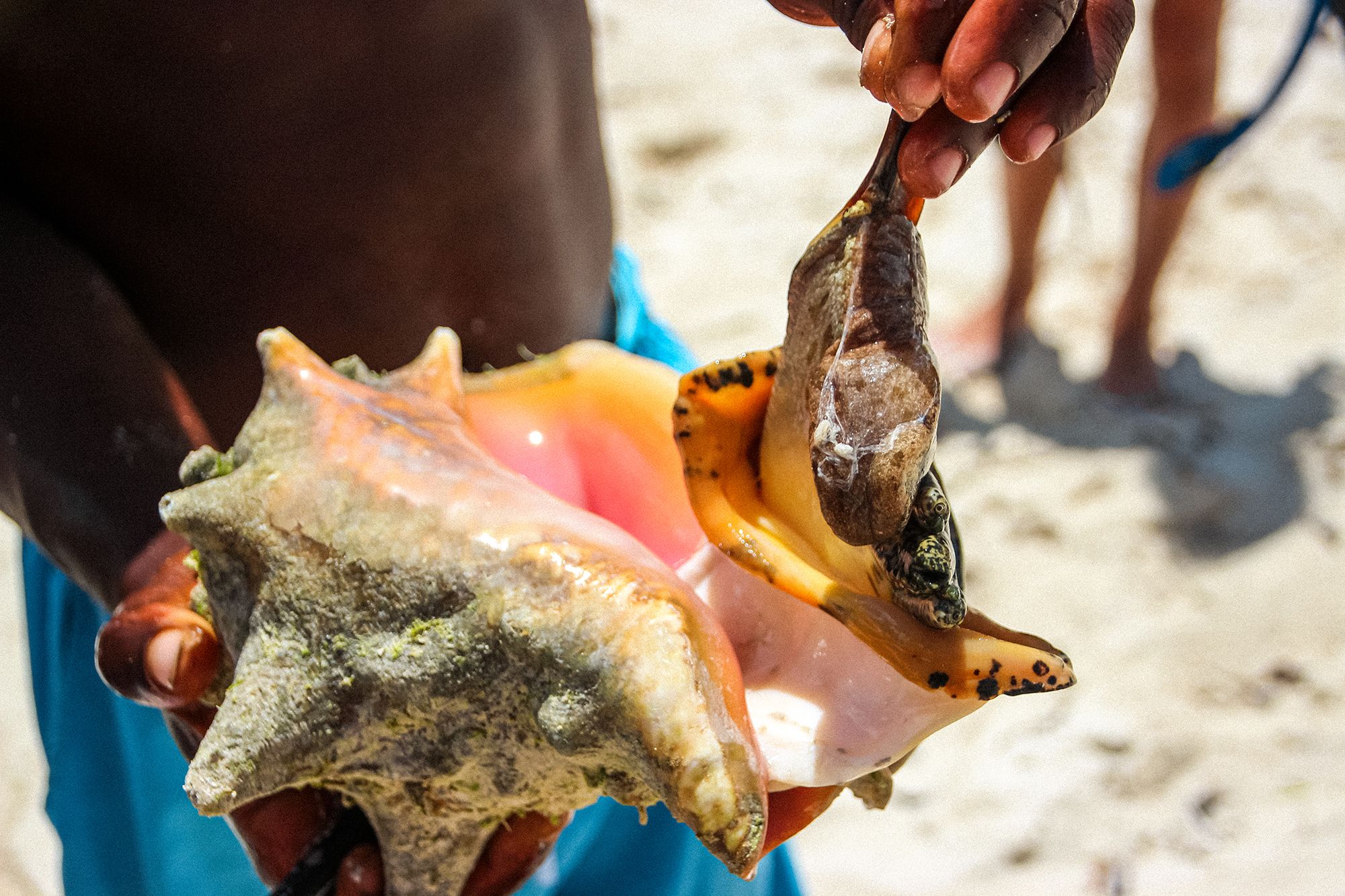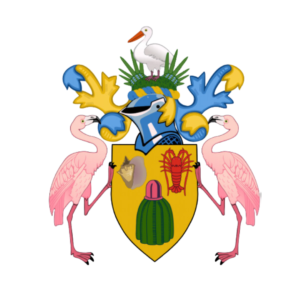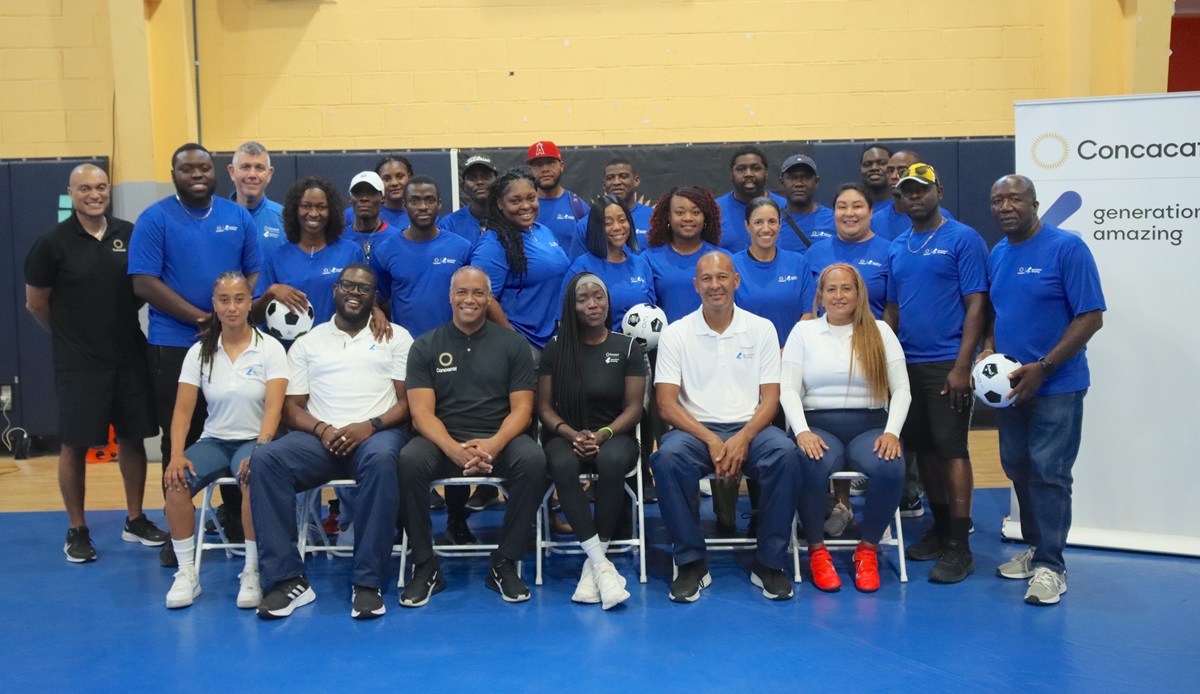#TurksandCaicos, May 2, 2024 – Thursday, April 25, 2024, marked a momentous occasion for The Turks and Caicos Islands Football Association with the launch of the Concacaf x Generation Amazing Program. This program, supported by the Turks and Caicos Islands Ministry of Education, is currently benefiting 21 public and private primary schools across the Turks and Caicos Islands, encompassing both sectors of education. The primary objective of the Generation Amazing program is to educate and certify teachers to serve as volunteer coaches in sports development and safeguarding practices. Through this training, coaches will deliver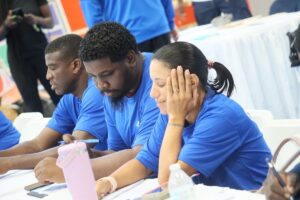 football programs to children, aiming to catalyze positive social change within our communities that will continue to thrive for years to come..
football programs to children, aiming to catalyze positive social change within our communities that will continue to thrive for years to come..
The program not only emphasizes teaching children the basics of football but also focuses on instilling core values like teamwork, respect, and leadership. The initiative offers children the chance to enhance their physical well-being while nurturing essential life skills that can contribute to success beyond the field.
TCIFA President, Sonia Fulford, conveyed her appreciation to Concacaf, Generation Amazing, and the Ministry of Sports of the Turks and Caicos Islands for their involvement and support. She highlighted the significance of the project, pointing up a positive impact on the Education Ministry. Generation Amazing’s initiative is also seen as a valuable opportunity to enhance both the educational and athletic aspects within the community. “We’ll have more well-rounded teachers, and well-rounded students, not only from an educational standpoint, but a sporting standpoint. For us it’s a big win!” The President expressed excitement for the project, foreseeing an increase in skilled players and coaches, ultimately benefiting the organization significantly.
Jarret Forbes, Director of Sports, commented, “We are excited about the launch of the Generation Amazing programme here in the Turks and Caicos Islands. We commend the TCIFA for taking a holistic approach to student empowerment through sports. And we are grateful for the interest and support from CONCACAF and the Department of Education in developing our young athletes.”
Alvin Parker, Deputy Director of Sports, also expressed his enthusiasm regarding the upcoming chance for educators to apply their acquired knowledge. Viewing the term ‘Generation Amazing’ as a rebranding concept for Generation X, it is with high anticipation that the program will inspire and instill optimism within the younger demographic.
A devoted team collaborated diligently to ensure the successful initiation of the program. Spearheading the launch for Concacaf were Jennifer Roche, the Concacaf CSR Coordinator; Andre Virtue, Concacaf Coach Educator; Cristian Cubillas; and Garry Stannecc, the Sport For Development Consultant for Concacaf. The local facilitators comprised Dane Ritchie, TCIFA Technical Director; Olivia Graveley, Director of the Grand Turk Football Program; Yunelsis Rodriguez Baez, Director of Women’s Football; and Damien Grant, TCIFA Coach Educator and South Caicos Football Development Officer. The launch encompassed a comprehensive two-day training session for teachers, which will be followed by a mandatory six-week program involving a minimum of 25 students from each school. The program’s execution will be supervised by our Local Facilitators in with the support of Generation Amazing staff. Furthermore, the program will offer support to schools by furnishing footballs and essential equipment.
Graveley, Director of the Grand Turk Football Program; Yunelsis Rodriguez Baez, Director of Women’s Football; and Damien Grant, TCIFA Coach Educator and South Caicos Football Development Officer. The launch encompassed a comprehensive two-day training session for teachers, which will be followed by a mandatory six-week program involving a minimum of 25 students from each school. The program’s execution will be supervised by our Local Facilitators in with the support of Generation Amazing staff. Furthermore, the program will offer support to schools by furnishing footballs and essential equipment.
Jennifer Roche elaborated on Concacaf’s emphasis on Social Impact strategies, highlighting the significance of extending focus beyond on-field activities. “Last year, our CSR brand, ’The Bigger Game’ launched and the ‘Generation Amazing’ Program is one of the programs under the pillars of access to play and coaches education. This program is focused heavily on capacity building and giving tools to teachers, community volunteers, and other community leaders to empower and change lives through our beautiful game.”
Andre Virtue commented, “Obviously, we see the sport and the opportunity it has to grow. But, at the core of it is the coaches and how the coaches engage with our youth. We see the social issues that our youth already have to deal with on a day to day basis, and the dependence on either the parent or some adult to guide them and to mentor them is assumed. And, there is an intentional approach to how we’re communicating life values as it is very important.” Distinguishing between athletic prowess and life skills, Andre indicated that Coach Educating initiative aims to bridge this gap by aligning sports experiences with essential life lessons. The football field, as a dynamic environment, serves as a valuable classroom where the intricacies of life are intertwined with the game’s dynamics. “There are so many things that happen on the football field that are connected to life. The game is a great teacher, but there is an intentional and deliberate attempt to teach those values. It’s just the winning, the losing, the ups and the downs that come out of the game.”
Dane Ritchie further explained that the program also adopts a personalized approach, focusing on individual needs rather than viewing the children as a collective group, thereby maximizing the positive impact on each child. The aspects of conflict resolution, and nurturing respect are deemed integral to the game and are leveraged to impart essential life skills crucial for their development.
CherylAnn Jones, Permanent Secretary to the Ministry of Education, Youth, Sports, and Social Services, communicated the Ministry’s unwavering support for the Concacaf x Generation Amazing program and its potential to bring about significant transformation. The Ministry’s ethos, centered on Human Capital Development, resonates strongly with initiatives like Generation Amazing, which focus on nurturing leadership qualities, teamwork, and community spirit among today’s youth for the benefit of future generations. “A key tenant of the Generation Amazing program is its emphasis on child safeguarding and so this program aligns with our policy of ensuring that children learn, grow and develop confidently in a safe and nurturing environment. We are delighted to be partners with Concacaf and TCIFA, and applaud these organizations and their continued programs among our young people. We also applaud our principals, physical education teachers, and coaches who will be trained as facilitators in our schools to implement the program, as well as the Sports Commission. We believe that that commitment through football will create positive change.”
For more information, please contact TCIFA Office Manager | Marketing and Communications Coordinator, Candia Ewing at 941-5532 or cewingtcifa@gmail.com
Address:
TCIFA National Academy
Venetian Road
Providenciales
Turks and Caicos Islands
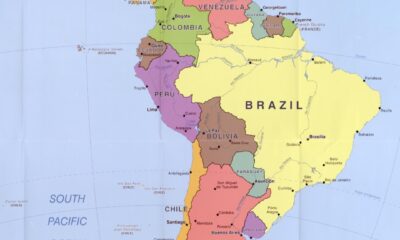
 Latin America and Caribbean1 week ago
Latin America and Caribbean1 week ago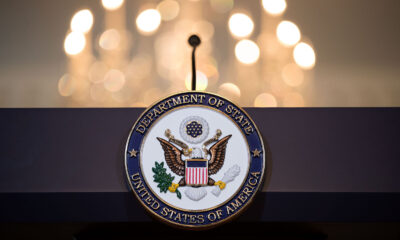
 Crime1 week ago
Crime1 week ago
 Bahamas News1 week ago
Bahamas News1 week ago
 TCI News1 day ago
TCI News1 day ago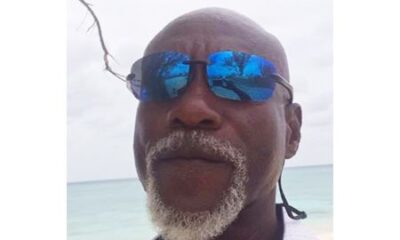
 Crime1 day ago
Crime1 day ago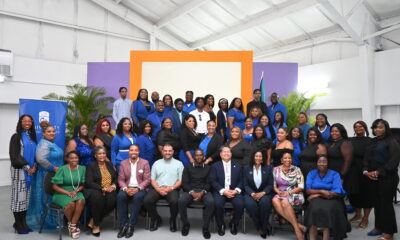
 Bahamas News1 week ago
Bahamas News1 week ago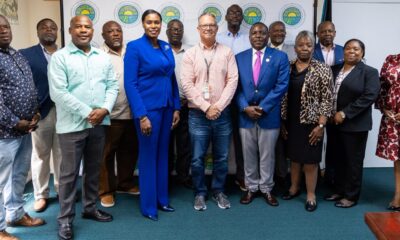
 Bahamas News1 week ago
Bahamas News1 week ago
 Caribbean News1 week ago
Caribbean News1 week ago
